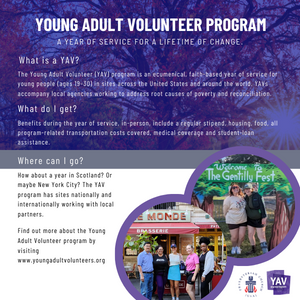| Amor de Hermanas – Sisterly Love, Amanda and Diana* |
By Amanda Ceraldi, Franciscan Mission Service
From the first day I met her, Diana* captured a piece of my heart. I’m not sure if it was her wide-eyed smile and precious dimples, her joyful belly laugh, or the way she called me “Miss” because she couldn’t properly pronounce my name, but she instantly captivated me. Diana brought a special light to my second grade English class. She was timid at first, but it didn’t take long until her excitement to learn took over. There was something unique about Diana. I didn’t know what it was at first, but I was eager to understand and love her more to find out.
Guatemala ranks fourth in the world among malnourished children. With 1 out of 2 children in Guatemala being chronically malnourished and nearly 3 out of 4 children in indigenous communities, it is hard not to be shocked by these statistics. When I first arrived in Guatemala these statistics didn’t really mean anything to me—they were overwhelming, but they were merely numbers. These numbers were a frustration with Guatemala’s infrastructure and they were a reminder of the work that needs to be done for the poor and marginalized.
I had done research on malnutrition in Guatemala before my arrival. I had heard stories about how malnutrition effects childhood development. I knew that lack of proper nutrition in the first few years of life has a great effect on a child’s ability to learn later in life. I understood how it would be more difficult for a child to advance in life, both mentally and emotionally, if they didn’t have access to the necessary nutrients to help their brains and bodies develop. But during my time at Orfanato Valle de los Angeles, a boarding school for poor and marginalized children who come from areas of Guatemala plagued with violence, abuse, and malnutrition, these numbers ceased to be a shock, a frustration, or a reminder. These numbers had a face. These numbers had a name. These numbers were my student, Diana. Suddenly, those statistics were directly impacting my call to mission.
The more time I spent with Diana the more I began to notice what separated her from the other students in class. Diana would yell out answers, not unlike her classmates, but she would become angry and hit herself if she didn’t know the correct answer. She would pace back and forth in frustration if she colored outside of the lines during an activity. She would often punch or kick other students when they would laugh at her for talking to herself. I began to see the other kids in my class isolating themselves from Diana. She was often left without a partner during class activities, her classmates called her names, and it didn’t take much for her to storm away and cry in the corner.
Like nearly 50% of the children born in Guatemala, Diana was born into such poverty that her family couldn’t properly take care of her. Because of this, and more reasons than I will ever know, Diana was abandoned and forced to overcome something way outside of her control in her young life. But upon her arrival at Valle de los Angeles, Diana was met with love and opportunity for her future. Like all of our 215 students, Diana was seen by our nurses, doctors, and nutritionists to ensure that she was growing, developing, and overcoming her malnourishment. She was given the opportunity to meet with our school psychologist to deal with the effects of her malnutrition. She was given a tutor to help her advance in her classes. But most of all, Diana was given love, care and hope.
One of the greatest things I’m learning during my time on mission is the power of ministry of presence and accompaniment. Diana taught me how to love and accompany in new ways. I learned how to adjust my lesson plans and teaching style to meet Diana’s needs in my classroom. I learned what would cause Diana’s anger and frustration in my class and how to help her work through her emotions. I learned that loving can simply be the action of opening your arms for a hug. I learned that sometimes, in order to love and accompany another person, all you need to do is be there. Diana taught me that our capacity to grow and to love goes beyond the statistics.
*Name Changed
Amanda is currently volunteering with Franciscan Mission Service. To find out more about this program, please click here.


 Thousands of faith-based service opportunities can be at your fingertips with the RESPONSE. Download the latest edition today!
Thousands of faith-based service opportunities can be at your fingertips with the RESPONSE. Download the latest edition today!
